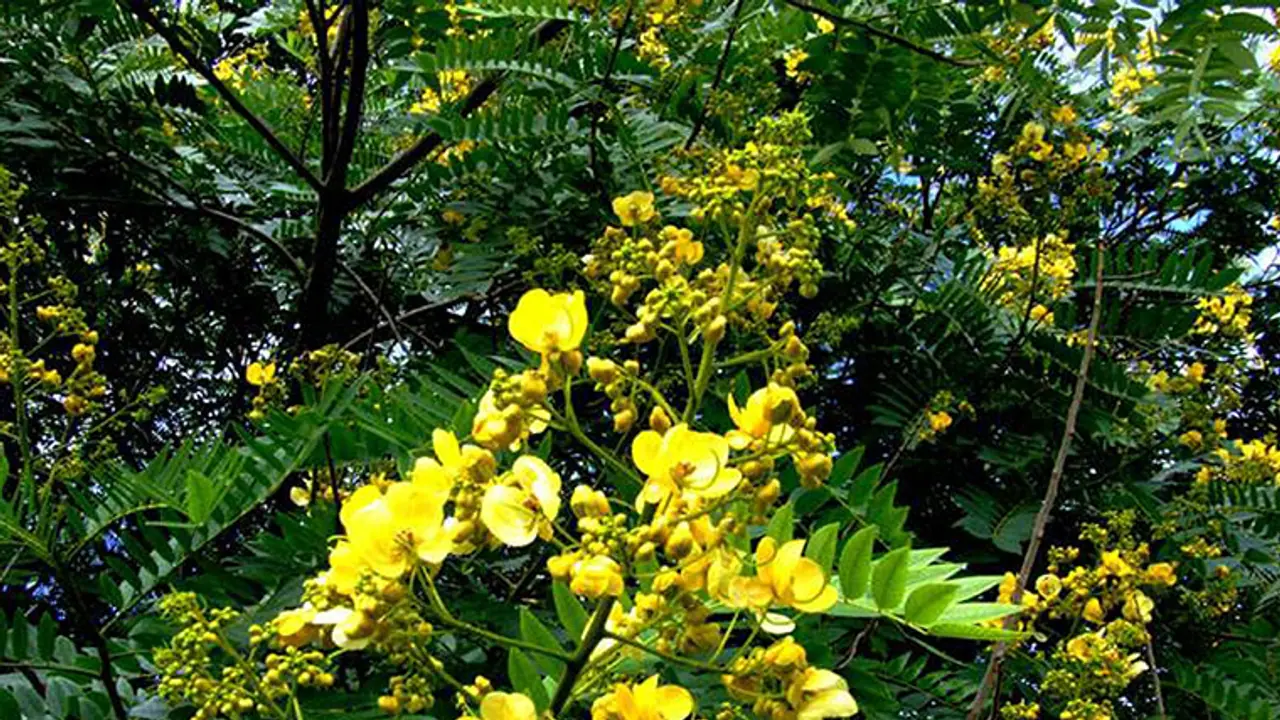The presence of alien plant species is posing a threat to wildlife The trees are capable of invading natural habitats and displace indigenous flora The stems and leaves consists of chemicals that suppress the growth of other plants
The presence of alien plant species is posing a threat to wildlife in Wayanad Wildlife Sanctuary. The presence of alien species is preventing the growth of local plant varieties affecting the ecology.

A report submitted by Forest Department to the authorities of Wayanad Wildlife Sanctuary, four types of alien species are spreading in the forest area in the district. None of them is fodder for animals while it poses a threat to farming, environment and wildlife as it is preventing the growth of local varieties.
The plants belong to Senna Spectabilis, a tree species belonging to the family Lantana (Lantana Camera), Fabaceae (subfamily Caesalpiniaceae), Mikenia (Mikania Micrantha) and Eupatorium (Chromolena Odorata). The trees can grow up to more than 20 metres in height and are considered as a native of Kenya.
However, it is capable of invading natural habitats and displace indigenous flora by growing into thickets. Propagation is mainly through seeds. Studies have found that 2% of Wayanad Wildlife Sanctuary is infested with the species.
The trees were introduced by Forest Department in Wayanad, decades ago as avenue trees, but is now exploring ways to eliminate them.
Mikenia is a perennial climber which shows rampant growth and a single stalk of the plant can produce over 40,000 mature seeds. The young plant grows extremely fast, about 10 cm in 24 hours, and climbs trees forming a dense cover entangling the stems.
Eupatorium is another variety preventing the establishment of other species. It is an aggressive and invasive weed which grows into a dense thicket chocking other vegetation.
The stems and leaves of plant varieties consist of chemicals that suppress the growth of other plants. It affects the overall productivity of forest ecosystem. Eupatorium has invaded over 80% of the sanctuary.
Weed cutters and proclains have failed to slow down the invasion. These plants must be eliminated from our ecosystem. More concerted efforts are needed, Wayanad Wildlife warden P Dhanesh Kumar said.
